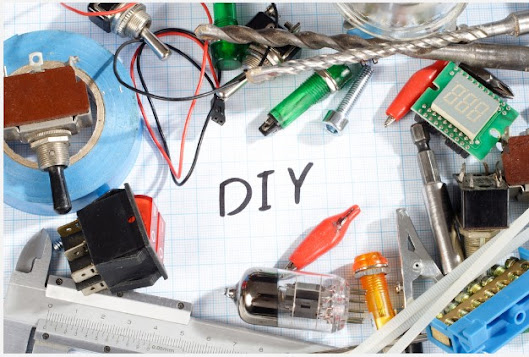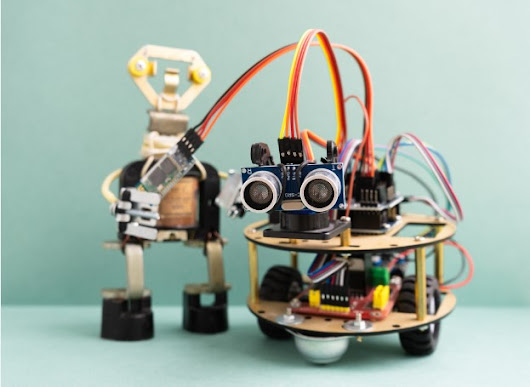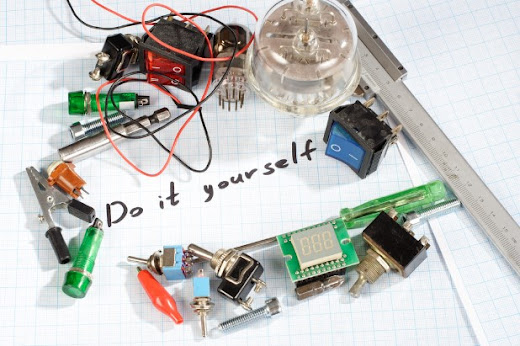Electronic Toys: The Learning Experience and Interactive Play for Kids of All Ages
Electronic toys are all around us, but what exactly is electronics? Electronics can be defined as the branch of physics that deals with the emission and effects of electrons and the operation of electronic devices. This includes anything from televisions to microwaves to computers. What does a typical electronic do? A good example would be a microwave because it emits electromagnetic waves in order to cook food or other items.
Electronics are the branch of physics that deals with the emission and effects of electrons, as well as operating electronic devices. This includes televisions, computers, smartphones, video game consoles - you name it! The world is becoming more and more reliant on electronics every day. What exactly are they? Well in short - they're what make our lives easier. Electronics is a broad and diverse field that includes everything from the operation of electronic devices to the emission and effects of electrons. It's important for kids to understand how electronics work, since they may be introduce
What is electronics in simple words?
Electronics is the branch of physics which deals with the study, application and development of techniques to control electron flow. Electrons are tiny particles that carry negative charge. They are used for producing electricity in electrical appliances like lamps, motors etc. Electronics includes all devices that involve the flow or transfer of electrons electronically such as computer circuits, mobile phones, television sets etc.
Electronics is the branch of science that deals with electrical circuits, devices and systems. It also refers to the technology of analog electronic components, digital computers and other similar devices. This includes their history, the theory behind them as well as their application in various fields including communication, telecommunication etc.
What exactly are electronics?
Electronics is a broad term that covers all devices and machines that use electricity. The word electronics was first coined in the mid 1920s, when engineers began to build electronic circuits with vacuum tubes instead of using electric switches based on electromechanical relays. Most people think about the gadgets we use everyday such as computers, phones and remote controls when they hear the word "electronics," but there are many different types of electronics beyond these consumer goods. Electronics can be used to power large manufacturing equipment or small medical devices; it can take the form of anything from an infrared motion sensor light in your home's foyer to a space telescope in orbit around Earth or Mars; and it may even be invisible, like an electrical current flowing through wires inside buildings
What is electronics and example?
Electronics is a form of science that deals with the study and application of electricity. It includes the generation, transmission, distribution and usage of electronic energy. Examples include televisions, radios, computers and mobile phones among many others. Electronics is a broad term that includes the engineering, production, and use of electrical equipment. This can include items such as cell phones, computers, televisions, microwaves, etc.
Electronics is a broad term that encompasses all of the devices and gadgets we use in our daily lives. From cell phones to microwaves, these items are used every day by billions of people around the world. Electronics encompass a wide range of technologies from computer chips to hand-held remote controls for televisions.
What does a electronics do?
Electronics is a term that refers to the use of electricity. Electricity can be used for many different things, such as powering machinery and appliances. In this blog post, I will describe some common devices that use electronics.
Electronics is the term for any device that has electrical components. These devices can range from small, simple gadgets to large, complex systems. Why do you think there are so many electronics in our world? It's because they make life easier and more convenient! With some of these devices we can communicate with people on the other side of the world without leaving our homes; others help us get around town; still others entertain us with games or music; while others keep track of time or provide information about things like weather, traffic or even what's happening in space. There are literally thousands of different types of electronic devices out there today, each designed to serve a particular need...and all very cool!
How do you teach electronics?
I'm always looking for new ways to teach electronics, and I've found some really cool things that make the whole process easier. One of my favorite resources is Sparkfun's "Getting Started with Electronics" kits. They come in an easy-to-use kit format with all the tools you need to get started on your next project!
There are many ways to teach electronics. It all depends on the age of the students and what you want them to learn. If you have a new group, it is best to start with basics such as how an LED works and then move into more complex components like motors and sensors. As they become more comfortable with these aspects of circuits, then move onto projects that rely on multiple components in order for them to work properly. This will help build their overall knowledge base while at the same time building confidence in their abilities.
Why do we study electronics?
Electronics is a very broad field that includes many different areas. We study electronics because we are curious about how things work. In this article, I will give you some examples of why we might want to learn more about electronics and how it can help us solve problems in our everyday life.
Have you ever wondered why we study electronics? Electronics has become a key skill in today's world and is used for everything from designing circuits to connecting computers. Electronics can be found in our homes, on the streets of large cities, and even deep within space. This blog will explore how electronics have developed over time and where they are headed in the future.
What do we learn in electronics?
Electronics is a very useful branch of science. It has so many uses in real life that it can be hard to keep track of them all. Here are some examples: microwaves, computers, smartphones, TV's and radios all use different forms of electronics. Electronics also play an important role in medical equipment such as heart monitors and x-ray machines. This blog will give you the basics on what we learn about electronics at school!
Electronics is a branch of science that deals with the flow and control of electrons in various devices. It's essential knowledge for many different careers, including engineering, information technology, robotics, etc. With advancements being made every day in this field to make electronics more efficient and compact, it is important to learn all you can about this interesting topic!
What is the definition of electronics in physics?
Electronics is a branch of physics that deals with the study and application of electronic devices. It focuses on using electricity to control electron flows in order to create useful, or at least interesting outcomes. Electronics is an integral part of every aspect of life, from the most basic things like light switches and alarm clocks, all the way up to more complicated inventions such as televisions and computers. In studying electronics you can learn about everything from how a simple radio works all the way up to quantum entanglement which has been theorized for decades but never actually observed until recently!
Why do you like electronics?
I love electronics because they have a great impact on society. I feel that it has helped to create an easier way for people to communicate.
In the past, what is needed was a telephone and telegraph employee in order to send messages back and forth between countries. Now with technology, we can just use our phones or computers!
I also love electronics because its made my life so much more convenient! For instance, when I want to listen to music while cleaning up around the house all of my songs are accessible through my phone! It's amazing how fast technology has grown these days!
Is electronics same as physics?
I get asked this question a lot, "Are electronics the same as physics?" And my answer is always no. Electronics is one of many different branches in physics. Electronics deals with studying how electrons flow through certain materials and what happens when they do. This branch of Physics has very little to do with mechanics or other forms of physical science.
Most people in the world would say that physics is a science and electronics is a branch of engineering. However, upon closer examination, they are not quite the same thing. Physics is primarily concerned with the natural sciences while electronics deals more with fields such as communications or computers. What's more, physics can be considered to be broader - encompassing all branches of natural sciences including chemistry and biology - while electronics only covers electrical engineering. In this blog post we'll take a look at some interesting aspects about these two subjects which you may not know!
How can I learn basic electronics?
You are not alone in your search for electronics learning. There are many people who want to know more about how to work with the components of electronic devices. Whether you want to start a career in this field or just have fun, there are plenty of places that offer courses and lessons on basic electronics. We hope that by reading this blog post you will find some information that will help you decide what path is best for your needs!
Do you want to learn electronics but don't know where to start? This blog post is for you. In this article, I will go over the basics of electronics and how it's a great hobby that can teach you a lot about science, math, logic and problem solving. Let's get started!
What should I know about electronics?
The world of electronics is a vast and complex one, with new developments happening every day. In this post we're going to go over some basic knowledge that will help you when buying electronics in the future. This includes understanding voltage levels, what each connector does, and how to tell if an electronic device has been tampered with.
If you are in the market for a new TV, computer, phone or more, this blog post is for you. This article will help if you're not sure what to look out for when purchasing electronics.
What is electronic device answer?
An electronic device is an electrical machine that is capable of converting electric energy into some other kind of energy. They are used in a variety of ways, but they are most commonly associated with the use of computers and cell phones. For example, computer monitors are considered to be electronic devices because they convert electricity into light so that it can then be seen by the human eye.
The idea behind this paragraph is to answer the question asked in the title "What Is An Electronic Device?" This intro paragraph provides information about what an electronic device actually does through describing how computer monitors work using simple language for readers who lack technological knowledge. It also gets readers interested in reading more by including examples like cell phones or computers which many people will have heard of before reading
What is an example of a device?
Today, we are going to talk about devices. Devices can be anything from a laptop or phone to an electronic book reader. In the past, many people used paper books and newspapers but with advancements in technology, more people are turning towards digital formats for their reading needs. Some examples of popular digital reading devices include the Kindle, Nook and iPad.
What are the 3 main parts of an electronic system?
An electronic system can be broken down into three main parts:
(1) input,
(2) output, and
(3) control.
Input is the data that comes from an outside source such as a sensor or user. The output is what we see on the screen - it's what the computer does with all of those numbers and letters to create something worthwhile for us to look at, like a video game or word document. And finally, control determines how our inputs are processed by creating instructions for processors and other hardware in order to accomplish tasks effectively.
See more blog
👉 Many People Now Own Smartphones: The Importance of Mobile Phones In Our Lives
👉 Top 10 Differences Between Laptops And Desktops (And Why You Want A Desktop)
👉 Basics of Photography: Evolution from Traditional to Digital
👉 What is a desktop computer and what is a laptop?
👉 What is TV, what is its use and its importance
👉 Technological and technological innovations: 10 electronic devices
👉 What is the difference between a phone and an allophone
👉 The History of the Desktop: From Text Based to Graphical User Interface





